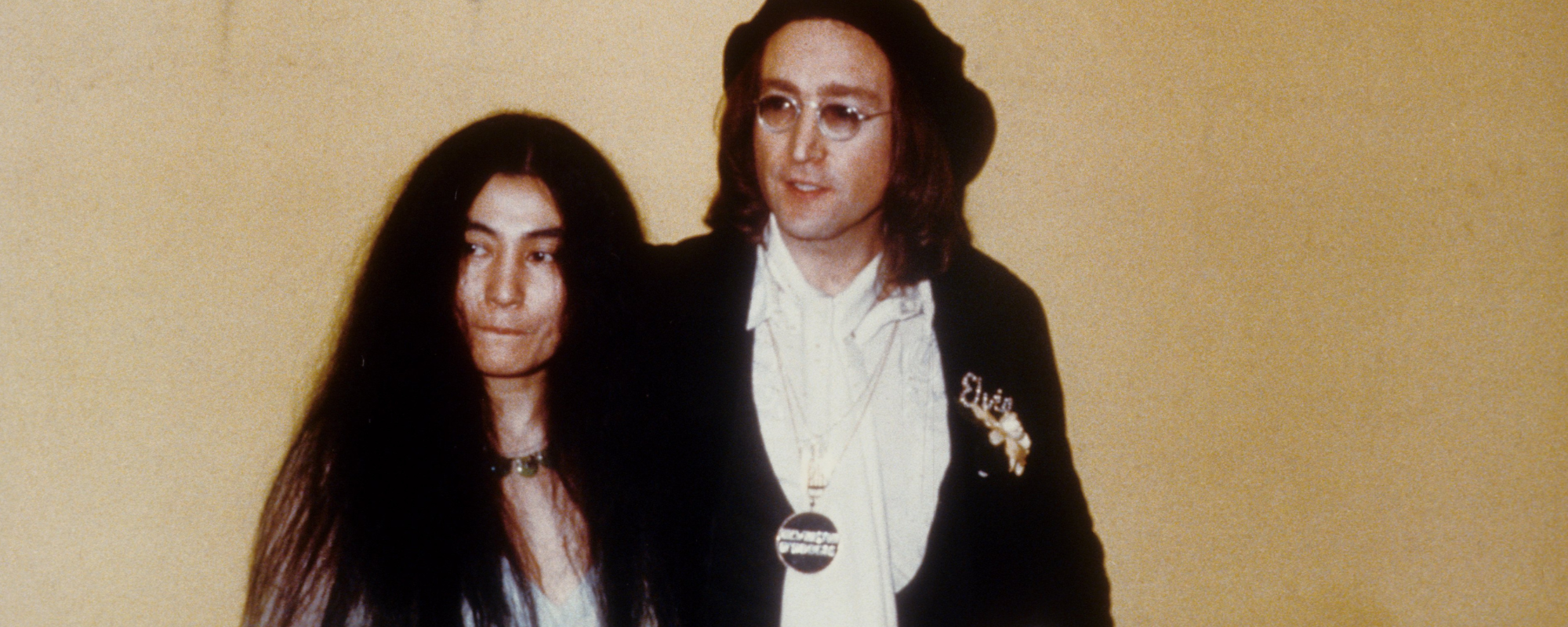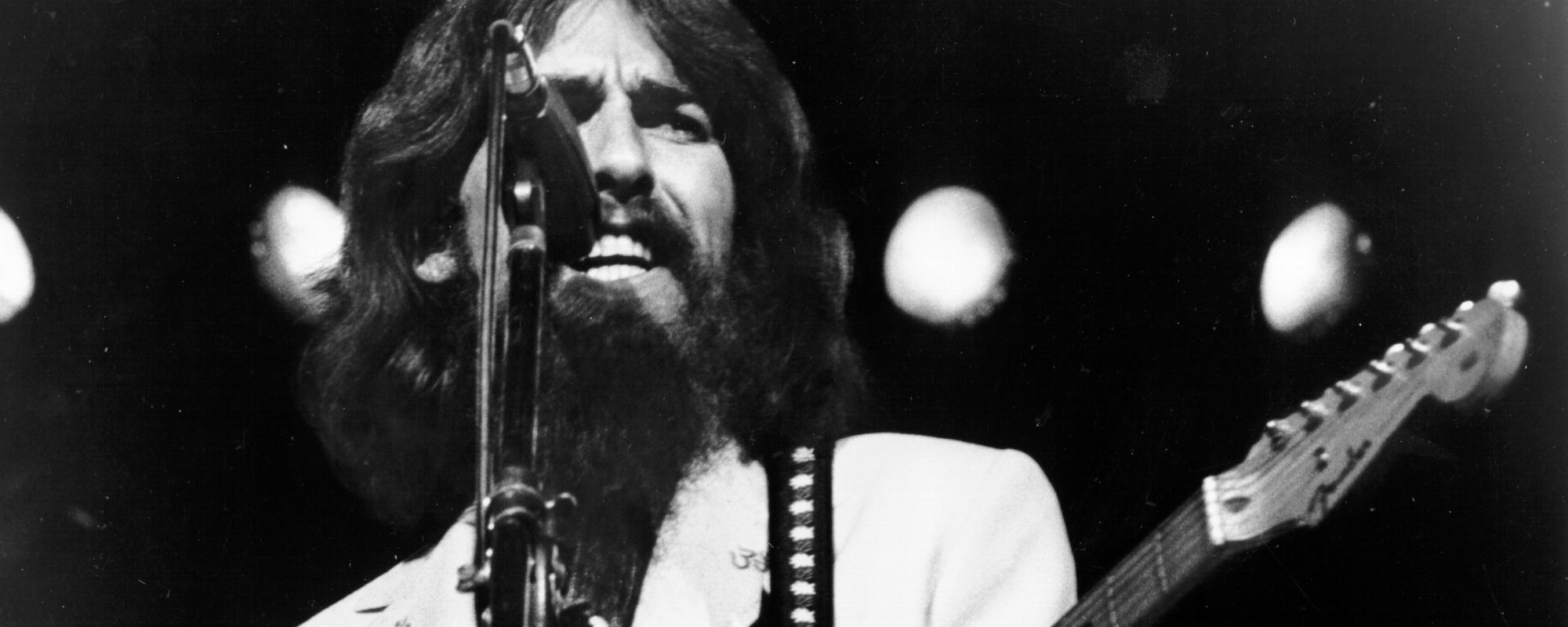“Congratulations! You’ve just purchased our worst album.”
Videos by American Songwriter
In case there was any doubt about how Elvis Costello felt about his 1984 album Goodbye Cruel World in the aftermath of its release, this was how he began his liner notes for the 1995 reissued version. Goodbye Cruel World was only a minor commercial letdown for Costello and his band The Attractions as it charted slightly lower than its predecessor, Punch the Clock. Similarly, the critical response to the album was lukewarm but not devastating. Costello pulled no punches in his own assessment, though, as he thought the album fell short of its potential on several of its tracks.
Should Costello Have made the Album with Nick Lowe?
Costello carried over the production team of Clive Langer and Alan Winstanley from Punch the Clock. That album was Costello’s successful experiment in trying to consciously write good pop songs that could be singles. The problem with working with Langer and Winstanley on Goodbye Cruel World was that Costello no longer wanted to write pop songs, but the producers wanted to make another pop-oriented album.
Both Costello and his producers cited conflict around the direction of Goodbye Cruel World as a source of problems that plagued the final product. In his liner notes for the 2004 reissue, Costello said Langer and Winstanley were “probably ill-equipped for dealing with someone of my temperament at that time. A nurse with a large sedative syringe might have been more appropriate.”
While Costello was making Goodbye Cruel World, his marriage to Mary Burgoyne was falling apart, and by the time the album was released, they were separated. These were unhappy times for Costello, so he wanted to create a downbeat album. Langer and Winstanley were looking to make another album in the mold of the cheerier Punch the Clock.
Retrospectively, Langer realized that he and Winstanley were not the right producers for the job. He said that Costello “would have been better off going back to Nick Lowe,” who produced or co-produced each of his first five albums.
Unhappy with the Album’s Singles
For the most part, Costello got to make the sad album he wanted. He also saw the value of creating some continuity between Punch the Clock and Goodbye Cruel World. Accordingly, Costello gave Langer and Winstanley freer reign on their productions of two of the album’s tracks, “The Only Flame in Town” and “I Wanna Be Loved,” the latter being a cover of a 1973 song by Teacher’s Edition. These tracks wound up being the two singles released from the album.
Both tracks were heavy on synths and featured guest stars providing backing vocals. Daryl Hall’s harmonies are clearly audible on the chorus on “The Only Flame in Town,” while Green Gartside of Scritti Politti sang on “I Wanna Be Loved.” Costello didn’t care for the arrangement for either song. In the 2004 liner notes, he explained why “The Only Flame in Town” didn’t hold up over time, at least to his ears. He wrote the song ”makes excessive use of the new DX7 synthesizer, the tone of which might as well date-stamp the album to an exact week in 1984.” Costello added, “Our labored attempt to record a band rendition with just such arcane arrangement … goes a long way in justifying the modern R&B treatment to which it was finally subjugated.” In the same set of liner notes, he called “I Wanna Be Loved” “a rather plastic sounding record.”
The Deeper Cuts Suffered, Too
Costello’s discontent went beyond the two singles. Regarding “The Deportees Club,” he wrote “the music of this recording was crude and uninspired.” About “Sour Milk Cow Blues,” he opined “the recording [lacked] much wit, grit, or charm.” In the 1995 liner notes, Costello said that “Home Truth” was “the saddest song I had ever written,” but its impact was minimized by “the clipped and sterile studio sound.”
While he blamed much of his dissatisfaction with Goodbye Cruel World on its production, Costello held himself responsible for the shortcomings of at least one track. On “The Comedians,” Costello chronicles his disillusionment with a group of friends with whom he lacks a heart connection. He wrote that he “trivialized the drama” of the song by arranging it in 5/4 time.
After Goodbye Cruel World
Not surprisingly, Costello went in a markedly different direction for his next album. On King of America, Costello opted for a more organic sound and recruited T Bone Burnett as his co-producer. He also worked with an almost entirely different set of musicians, including Burnett and ex-members of Elvis Presley’s band. The Attractions were relegated to just one track on the album.
Costello reunited with The Attractions for the following album, Blood & Chocolate. He also brought Lowe back as a co-producer—perhaps two albums too late. Costello would not feature The Attractions on any of his next four albums. They would return for his 1994 album Brutal Youth, though the record would be solely credited to Costello.
While Costello has been clear that Goodbye Cruel World does not stand up to his best work, he has tempered his disdain for the album as time has passed. In the 2004 liner notes, Costello emphasized there were good songs on the album, writing, “it is probably the worst record I could have made of a decent bunch of songs.” Still, he hasn’t elevated the tunes to the degree of the ones he plays most often in concert. According to setlist.fm, only “Love Field” ranks among his 40 most-played songs live.
When you’ve made as many great albums as Costello has, one of them still has to come in last place. Costello is also far from the only esteemed artist to succumb to the production trends of the ‘80s, many of which have not aged well. In the case of Goodbye Cruel World, Costello knew at the time that some of the recording choices were a mistake. While he and many others consider the album to be a low point in his career, it’s fair to say that it didn’t tarnish the legacy of his massive discography.
When you purchase through links on our site, we may earn an affiliate commission.
Photo by Larry Busacca/Getty Images for Songwriters Hall Of Fame












Leave a Reply
Only members can comment. Become a member. Already a member? Log in.